How much water should I drink to lose weight?
Discover the answer to "How much water should I drink to lose weight?" Learn the role hydration plays in weight management and optimal wellness.

How Much Water Should I Drink to Lose Weight?
Water is an essential component of any weight loss journey, but understanding how much water you need to drink can be a challenge. Proper hydration is crucial for overall health and well-being, but it also plays a significant role in effective weight management. In this article, we will explore the importance of water in weight loss and provide guidelines for how much water you should drink to support your weight loss goals.
Key Takeaways:
- Drinking water can aid in weight loss by suppressing appetite, reducing calorie intake, and promoting fullness.
- The amount of water you should drink to lose weight varies depending on factors such as your weight, activity level, and individual needs.
- The recommended daily water intake for an average person is 64 ounces, but individuals who are overweight or engage in regular exercise may need more.
- Drinking water before meals can help reduce appetite, while replacing sugary beverages with water can lower calorie intake and decrease the risk of weight gain.
- It is essential to drink enough water for weight loss but avoid excessive intake, as overhydration can be dangerous.
- Tips for increasing water consumption include adding flavor to water, consuming water-rich fruits and vegetables, and using a tracker app to monitor your intake.
- While drinking water is beneficial for weight loss, it should be combined with other lifestyle changes for optimal results.
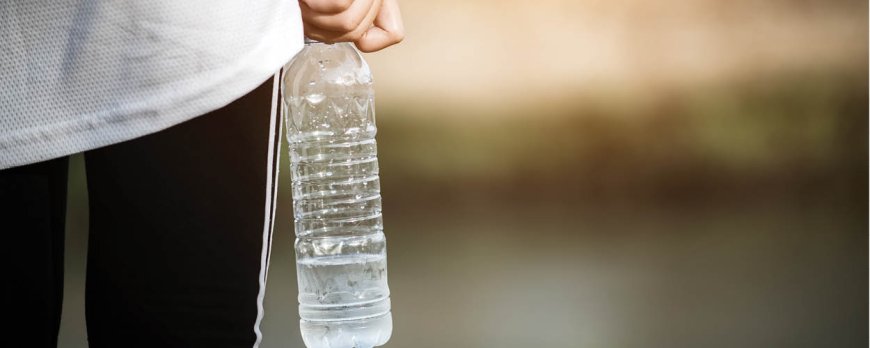
The Role of Hydration in Weight Management
Proper hydration plays a crucial role in weight management, as water is involved in various physiological processes that impact metabolism and overall health. When it comes to weight loss, drinking an adequate amount of water can be beneficial in several ways.
- Appetite suppression: Drinking water before meals can help to suppress appetite, making you feel fuller and potentially reducing calorie intake. This can be particularly helpful for those trying to control their portion sizes and reduce snacking.
- Calorie reduction: Swapping sugary drinks, like soda or juice, for water can significantly decrease the number of calories consumed. These high-calorie beverages are often packed with added sugars and offer little nutritional value, making them a common contributing factor to weight gain.
- Increased calorie burning: Water intake has been linked to an increase in metabolism. Drinking enough water helps your body efficiently convert calories into energy, promoting the burning of stored fat.
- Feeling full: Staying hydrated can help you feel fuller for longer periods, reducing the likelihood of overeating or constant snacking. This feeling of fullness can be attributed to water's ability to fill up the stomach and stretch its walls, sending signals to the brain that you've had enough to eat.
While the general recommendation for daily water intake is around 64 ounces, the specific amount needed for weight loss can vary based on factors such as weight, activity level, and individual needs. For those who are overweight or engage in regular exercise, it may be necessary to increase water consumption to adequately support weight loss efforts.
It is essential to strike a balance and avoid overhydration, as excessive water intake can lead to water intoxication. This condition, also known as hyponatremia, occurs when the sodium levels in the body become diluted, potentially causing serious health complications. To ensure optimal hydration without overdoing it, it's suggested to drink water when you are thirsty and monitor urine color—pale yellow indicates proper hydration.
In summary, staying properly hydrated is crucial for weight management. Drinking water can help suppress appetite, reduce calorie intake from sugary drinks, increase calorie burning, and promote a feeling of fullness. It is important to find the right balance of water intake for your individual needs, taking into account factors such as weight and activity level. By incorporating water into your weight loss journey, along with other lifestyle changes, you can optimize your efforts and strive for success.
Factors Affecting Water Intake for Weight Loss
The amount of water required for weight loss is not a one-size-fits-all approach and can vary depending on several factors. Here are some key considerations:
- Weight: Generally, individuals with higher body weight will require more water to support weight loss efforts. As a guideline, it is recommended to consume an additional 8 ounces of water for every 25 pounds of body weight.
- Activity Level: Physical activity increases the amount of water your body needs. If you engage in regular exercise or have a physically demanding job, you may need to increase your water intake to stay properly hydrated and support weight loss.
- Individual Needs: Individual factors such as age, gender, metabolism, and overall health can influence how much water you need. It's important to listen to your body and adjust your water intake accordingly.
If you're unsure about how much water you should be drinking for weight loss, consult with a healthcare professional or a registered dietitian who can provide personalized recommendations based on your specific circumstances.
Remember, staying adequately hydrated is crucial for overall health and well-being. Drinking enough water can support weight loss efforts, but it should be combined with a balanced diet, regular exercise, and other lifestyle changes for optimal results.
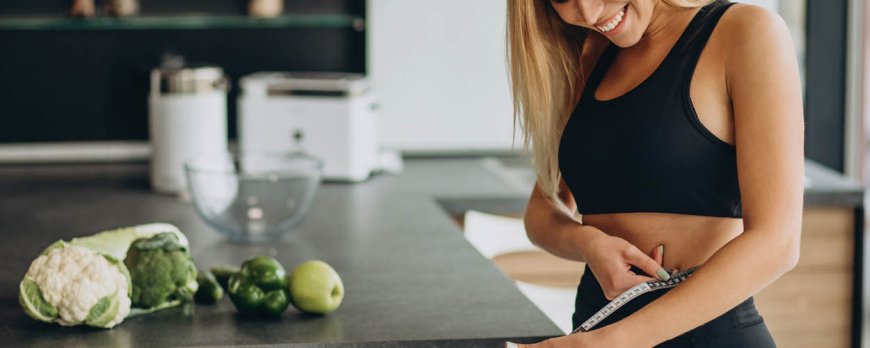
Recommended Daily Water Intake for Weight Loss
While individual needs may vary, on average, it is recommended to consume at least 64 ounces of water per day for weight loss. Drinking an adequate amount of water is essential for maintaining proper hydration levels and supporting overall health. When it comes to weight loss, water plays a crucial role in several ways.
Here are some key reasons why drinking enough water is important for weight loss:
- Appetite suppression: Staying hydrated can help curb your appetite and reduce cravings, making it easier to stick to a healthy eating plan.
- Calorie intake reduction: Choosing water over sugary drinks can significantly lower your calorie intake, as these beverages often contribute excess calories without providing any nutritional value.
- Calorie burning: Drinking water can slightly increase your metabolism, leading to a higher calorie burn throughout the day.
- Feeling of fullness: Water has zero calories and can help create a sense of fullness, which can prevent overeating.
Factors Influencing Water Intake for Weight Loss
It is important to note that the recommended daily water intake for weight loss may vary depending on factors such as body weight, activity level, and individual needs. People who are overweight or engage in regular physical activity may require more water to replace the fluids lost through sweat.
Here are some factors that can influence how much water you should consume for weight loss:
- Body weight: Generally, those with higher body weight require more water to support their metabolism and eliminate waste products.
- Activity level: Engaging in physical activity increases fluid loss through sweat, making it essential to replenish fluids by drinking more water.
- Individual needs: Some individuals may have specific health conditions or medications that affect their water requirements. It is important to consult with a healthcare professional for personalized recommendations.
Overall, while consuming the recommended daily water intake is essential for weight loss, it is also important to listen to your body's signals and adjust your water intake accordingly. Pay attention to factors such as thirst, urine color, and overall hydration levels to ensure you are meeting your body's needs.
Remember, drinking water is just one component of a comprehensive weight loss plan. Incorporating a balanced diet, regular exercise, and healthy lifestyle habits are equally crucial for achieving and maintaining a healthy weight.
The Benefits of Water for Weight Loss
Drinking adequate amounts of water can offer numerous benefits to those aiming to lose weight. Here are some key reasons why water is essential for weight loss:
- Appetite Suppression: Water acts as a natural appetite suppressant, helping you feel fuller and reducing the temptation to overeat.
- Calorie Intake Reduction: By choosing water over sugary beverages, you can significantly reduce your calorie intake. The empty calories found in drinks like soda, juice, and energy drinks can be a major hindrance to weight loss.
- Increased Calorie Burning: Water plays a vital role in metabolism and energy production. Staying hydrated can boost your calorie-burning potential, promoting weight loss.
- Promotes a Feeling of Fullness: Drinking water before meals can help you feel more satiated, leading to smaller portion sizes and reduced overall calorie consumption.
The Importance of Staying Hydrated
Proper hydration is crucial for overall health and well-being, not just for weight loss. When you're well-hydrated, your body functions optimally, supporting digestion, nutrient absorption, and waste elimination. Water also helps regulate body temperature, lubricates joints, and aids in the transportation of nutrients.
How Much Water Should You Drink for Weight Loss?
The recommended daily water intake for the average person is around 64 ounces, or eight 8-ounce glasses. However, individual water needs may vary based on factors such as weight, activity level, and climate. Those who are overweight or engage in regular physical activity may require more water to stay adequately hydrated. It's always best to listen to your body and drink when you feel thirsty.
Tips for Increasing Water Intake
If you struggle to drink enough water, here are some tips to help you increase your intake:
- Add flavor to your water by infusing it with fresh fruits, herbs, or cucumber slices.
- Incorporate water-rich fruits and vegetables into your diet, such as watermelon, cucumbers, and strawberries.
- Use a water tracking app or set reminders to ensure you're drinking enough throughout the day.
Remember, while drinking water plays a vital role in weight loss, it is just one piece of the puzzle. Incorporating other healthy lifestyle habits, such as regular exercise and a balanced diet, is essential for achieving optimal results.
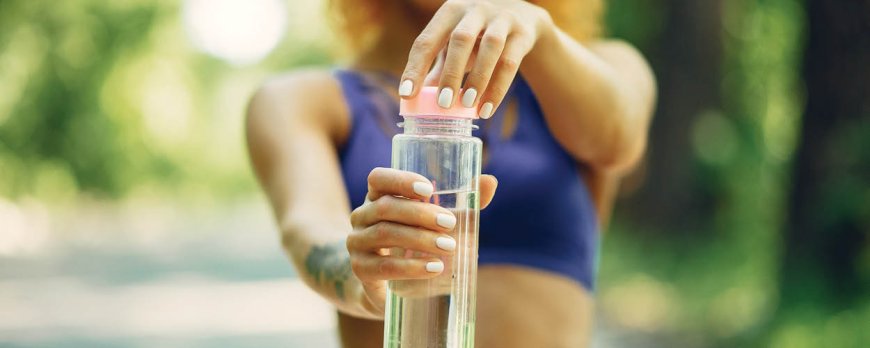
Drinking Water Before Meals for Weight Loss
One effective strategy for weight loss is to drink water before meals to enhance satiety and control portion sizes. This simple practice can help you consume fewer calories during mealtime, ultimately aiding in your weight loss efforts. When you drink water before a meal, it helps fill up your stomach, leading to a greater feeling of fullness. As a result, you may find yourself eating less and being more mindful of your portion sizes.
A study published in the journal Obesity found that adults who drank 16 ounces of water before a meal experienced greater weight loss compared to those who did not. The participants who hydrated before their meals consumed fewer calories, suggesting that water intake can play a significant role in managing your weight.
Tips for Drinking Water Before Meals:
- Make it a habit: Set a reminder or establish a routine to drink a glass of water before each meal.
- Opt for cold water: Cold water can help boost your metabolism slightly, aiding in calorie burning.
- Flavor it up: If plain water is not appealing to you, try infusing it with fruits like lemon, cucumber, or mint for a refreshing twist.
- Stay consistent: Aim to drink water consistently throughout the day, not just before meals, to ensure you stay hydrated and support your body's natural processes.
Remember, while drinking water before meals can be a helpful strategy for weight loss, it is important to combine it with other healthy habits such as regular exercise, a balanced diet, and portion control. Water alone cannot guarantee weight loss, but it can certainly be a valuable tool in your weight management journey.
Replacing Other Beverages with Water for Weight Loss
Swapping sugary drinks with water can significantly contribute to weight loss efforts by eliminating excess calories from the diet. Water is a zero-calorie beverage that can quench thirst without adding any unwanted calories. By replacing high-calorie beverages like soda, juice, and energy drinks with water, you can reduce your overall calorie intake and create a calorie deficit, which is essential for weight loss.
In addition to being calorie-free, water also helps to promote a feeling of fullness. When you drink water before or during a meal, it can help you feel satisfied and potentially reduce your appetite, leading to a lower calorie intake. This is especially beneficial if you tend to eat larger portions or struggle with overeating.
To make it easier to replace other beverages with water, consider carrying a reusable water bottle with you throughout the day. This way, you'll always have a convenient and healthy option available. If you find plain water boring, try adding a squeeze of lemon or a few slices of cucumber to infuse a subtle flavor. Another strategy is to consume water-rich fruits and vegetables, such as watermelon, strawberries, cucumbers, and lettuce, which can contribute to your overall hydration while providing important vitamins and minerals.
Benefits of Replacing Other Beverages with Water:
- Reduces calorie intake and creates a calorie deficit for weight loss
- Helps to promote a feeling of fullness and reduce appetite
- Keeps you hydrated without adding any extra calories
- Avoids the negative health effects associated with sugary drinks
When aiming to lose weight, remember that every small change counts, and swapping sugary drinks with water is a simple yet effective step you can take towards your goals. However, it's important to note that water alone is not a magic bullet for weight loss. It should be combined with a balanced diet, regular physical activity, and other healthy lifestyle habits for optimal results. By making mindful choices about what you drink and staying hydrated with water, you can support your weight loss journey and improve your overall health and well-being.
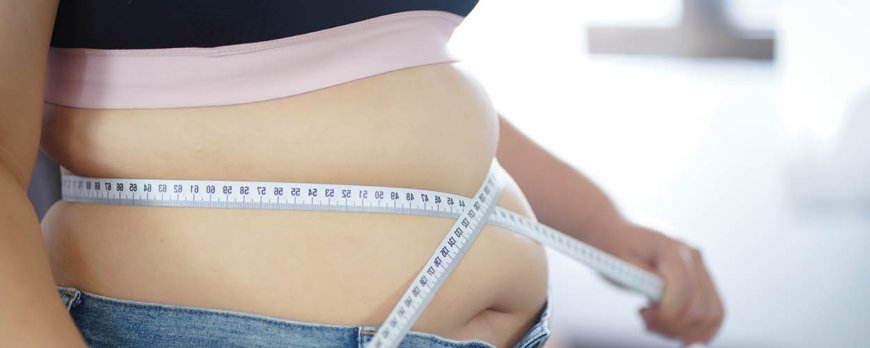
The Dangers of Overhydration
Drinking enough water is crucial, but it is essential to avoid overhydration, which can have adverse effects on the body. While it's important to stay hydrated for weight loss and overall wellness, excessive water consumption can lead to a condition known as water intoxication or hyponatremia. This occurs when the balance of electrolytes in the body is disrupted, diluting the sodium levels in the blood and causing a range of symptoms.
Signs and Symptoms of Overhydration:
- Headaches
- Nausea
- Vomiting
- Confusion
- Seizures
- Muscle weakness or cramps
- Coma (in severe cases)
While overhydration is rare, it is important to be mindful of your water intake and listen to your body's signals. It's typically recommended to drink water when you feel thirsty and to avoid excessive consumption. If you notice any of the symptoms mentioned above, it's crucial to seek medical attention immediately.
Remember that each individual's water needs may vary based on factors like weight, activity level, and climate. It's always a good idea to consult with a healthcare professional or registered dietitian to determine your specific hydration needs for weight loss and overall health.
Tips for Increasing Water Intake
Incorporating these tips into your daily routine can help you reach your desired water intake for weight loss:
- Add flavor to your water: If you find plain water boring, try infusing it with slices of lemon, cucumber, or berries for a refreshing and flavorful twist.
- Include water-rich fruits and vegetables in your diet: Foods such as watermelon, strawberries, cucumbers, and lettuce are not only hydrating but also contribute to your overall water intake. Plus, they are low in calories, making them perfect for weight loss.
- Use a water tracking app: Monitoring your water consumption can help you stay accountable and ensure you're meeting your daily intake goals. There are many smartphone apps available that make it easy to track and remind you to drink water throughout the day.
- Set reminders: If you tend to forget to drink water, set reminders on your phone or computer to prompt you to take a sip. You can also keep a water bottle with you at all times as a visual reminder.
- Create a drinking schedule: Establishing a routine can be helpful in ensuring you're consistently drinking enough water. For example, you could aim to have a glass of water upon waking up, before each meal, and before going to bed.
- Drink water instead of sugary drinks: Replace high-calorie beverages like soda, juice, or energy drinks with water. Not only will this reduce your overall calorie intake, but it will also be beneficial for your overall health.
- Make it a habit: Like any lifestyle change, increasing your water intake requires consistency. Make it a habit by incorporating it into your daily routine until it becomes second nature.
Remember, water is just one piece of the weight loss puzzle. While it can aid in your weight loss journey, it's important to combine it with other healthy lifestyle changes such as a balanced diet and regular physical activity. Stay hydrated, listen to your body's needs, and make sustainable choices that work for you.
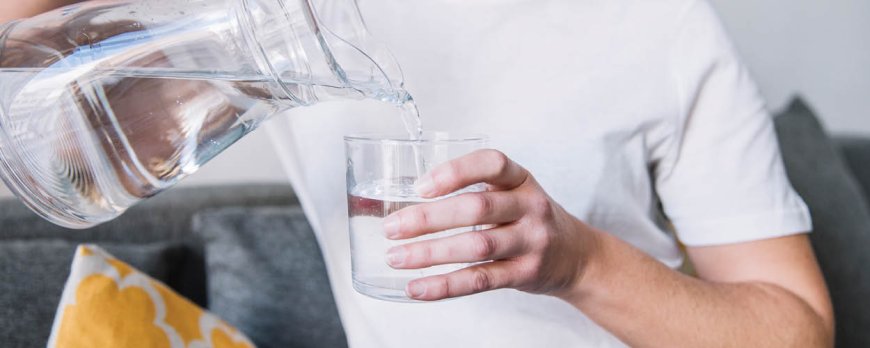
Water as One Piece of the Weight Loss Puzzle
While water consumption can contribute to weight loss, it should be part of a comprehensive approach that includes a balanced diet and regular physical activity. Drinking an adequate amount of water can help suppress appetite, reduce calorie intake, increase calorie burning, and promote a feeling of fullness. However, it is important to note that solely relying on water consumption for weight loss is not sufficient.
When it comes to losing weight, it is crucial to create a calorie deficit by consuming fewer calories than you burn. This is where a balanced diet and regular physical activity come into play. Incorporating nutritious foods and engaging in regular exercise can further enhance weight loss efforts. Water consumption should complement these lifestyle changes rather than be solely depended upon.
How Water Aids in Weight Loss
- Appetite suppression: Drinking water before meals can help reduce hunger and prevent overeating, leading to a decrease in calorie intake.
- Reduced calorie intake: Swapping high-calorie beverages with water can significantly reduce overall calorie consumption, making it easier to maintain a calorie deficit.
- Increased calorie burning: The process of thermogenesis, which refers to the body's ability to burn calories, is enhanced when you are properly hydrated.
- Promotes fullness: Water is calorie-free and can help create a feeling of fullness, reducing the likelihood of unnecessary snacking or overeating.
Tips for Incorporating More Water into Your Routine
Here are some practical tips to help increase your water intake:
- Add flavor: If plain water is not appealing to you, try adding a slice of lemon, cucumber, or mint to enhance the taste.
- High-water content foods: Eating fruits and vegetables with high water content, such as watermelon, cucumbers, and strawberries, can contribute to your overall hydration.
- Use a tracker app: Utilize apps or set reminders to help monitor and track your water consumption throughout the day.
- Carry a water bottle: Keep a water bottle with you at all times as a constant reminder to stay hydrated and make it easily accessible.
Remember to listen to your body's signals and drink enough water to stay properly hydrated, but avoid overhydration. Maintaining a healthy balance is key to reaping the benefits of water for weight loss while avoiding any potential risks. By combining proper water intake with a balanced diet and regular physical activity, you can optimize your weight loss journey and achieve your goals.
Conclusion
Adequate water consumption is vital for weight loss as it helps to suppress appetite, reduce calorie intake, and promote optimal bodily functions. Drinking water has numerous benefits when it comes to shedding extra pounds. It acts as a natural appetite suppressant, making you feel fuller and less likely to overeat. By replacing sugary drinks with water, you can significantly reduce your calorie intake and prevent weight gain. Additionally, water boosts your metabolism, leading to increased calorie burning throughout the day.
The amount of water you should drink to lose weight depends on various factors, such as your weight, activity level, and individual needs. On average, it is recommended to consume 64 ounces of water per day. However, individuals who are overweight or engage in regular physical activity may require more water to stay properly hydrated. It is important to listen to your body and adjust your water intake accordingly.
Integrating water into your weight loss strategy can be done in different ways. Drinking water before meals can help curb your appetite and prevent overeating. By making a habit of replacing high-calorie beverages with water, you can significantly reduce your overall calorie intake and minimize the risk of weight gain. However, it is crucial to find a balance and avoid excessive water consumption, as it can lead to water intoxication, which can be dangerous.
There are several practical tips to help you increase your water intake for weight loss. Adding flavor to your water with citrus fruits or herbs can make it more enjoyable to drink. Eating fruits and vegetables with high water content, such as watermelon and cucumbers, can also contribute to your overall hydration. Further, using a water tracker app can help you monitor and track your daily water consumption to ensure you meet your weight loss goals.
In conclusion, while drinking water alone is not a magical solution for weight loss, it is an essential piece of the puzzle. By incorporating adequate water consumption into your weight loss journey and combining it with other healthy lifestyle changes, such as a balanced diet and regular exercise, you can achieve optimal results and improve your overall well-being.
FAQ
How much water should I drink to lose weight?
The recommended amount of water to drink for weight loss varies depending on your weight, activity level, and individual needs. For an average person, the recommended amount is 64 ounces per day. However, people who are overweight or workout frequently may need more water.
What is the role of hydration in weight management?
Hydration plays a crucial role in weight management as it helps suppress appetite, reduce calorie intake from sugary drinks, increase calorie burning, and promote a feeling of fullness. Adequate water intake is essential for optimal wellness and successful weight loss.
What factors affect water intake for weight loss?
The amount of water an individual should consume for weight loss is influenced by factors such as weight, activity level, and individual needs. It is important to consider these factors to determine the optimal water intake for effective weight management.
What is the recommended daily water intake for weight loss?
As a general guideline, the recommended daily water intake for weight loss is 64 ounces per day for an average person. However, individuals who are overweight or engage in frequent physical activity may need to consume more water to support their weight loss goals.
What are the benefits of water for weight loss?
Drinking water can aid in weight loss by suppressing appetite, reducing calorie intake from sugary drinks, increasing calorie burning, and promoting a feeling of fullness. It is an essential component of a healthy weight loss journey.
Is drinking water before meals beneficial for weight loss?
Yes, drinking water before meals can be beneficial for weight loss. It helps reduce appetite, potentially leading to lower calorie intake during meals. This simple strategy can support your weight loss efforts.
Should I replace other beverages with water for weight loss?
Yes, it is recommended to replace high-calorie beverages such as sugary drinks and sodas with water to reduce overall calorie intake and minimize the risk of weight gain. Water is a calorie-free and hydrating alternative.
What are the dangers of overhydration?
While it is important to drink enough water, excessive water consumption can lead to water intoxication, which can be dangerous. It is crucial to maintain a proper balance and avoid overhydration.
What are some tips for increasing water intake?
Some tips for increasing water intake include adding flavor to water with citrus fruits or herbs, eating fruits and vegetables with high water content, using a tracker app to monitor water consumption, and carrying a water bottle with you throughout the day. These strategies can help you meet your water intake goals for weight loss.
Is water alone enough for weight loss?
While drinking water can aid in weight loss, it is just one piece of the puzzle. To achieve optimal results, it is important to combine water consumption with other lifestyle changes such as a balanced diet and regular exercise.


































































































































